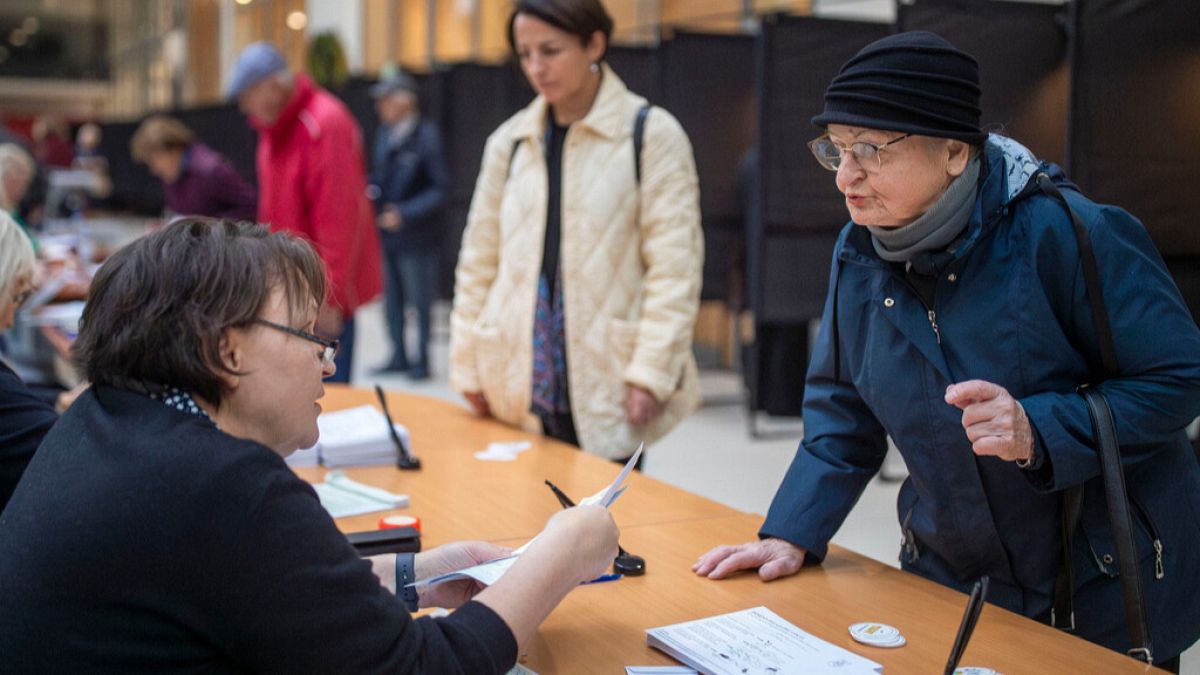The first round of parliamentary elections in Lithuania is underway, with 2.4 million eligible voters choosing from 2,400 political candidates. The results will determine the makeup of the 141-seat Seimas for a four-year term. The runoff vote is scheduled for October 27th. The outcome of the election could see the opposition Social Democrats and smaller centre-left parties replacing the current centre-right governing coalition led by Prime Minister Ingrida Šimonytė. Despite strong economic growth, including double-digit personal income growth and low inflation rates, many voters are dissatisfied with the government’s handling of various crises and shocks.
Criticism of Šimonytė’s government includes complaints about strict COVID-19 measures, lack of support for businesses during lockdowns, and limited access to healthcare services. The issue of migrants arriving from Belarus has also sparked controversy. The Social Democratic Party is expected to lead at the polls, followed by Šimonytė’s Homeland Union. The newly registered Nemuno Aušra party, led by right-wing politician Remigijus Žemaitaitis, is also expected to gain support. If no party receives more than 20% of the vote, governing alliances will be necessary. Despite potential political shifts, analysts believe there will be no significant changes in Lithuania’s foreign policy, especially regarding Russia.
The ongoing conflict in Ukraine has heightened concerns about Russia’s intentions, particularly in the Baltic region. The election results could impact Lithuania’s stance on these geopolitical issues. Voter concerns about migration, economic stability, and government response to crises are driving the political landscape in Lithuania. Analysts predict that a shift to the left would not drastically alter foreign policy, especially towards neighboring Russia. It is crucial for political parties to address these challenges and economic gains to secure voter support.
Lithuania’s economic success, including strong income growth and low inflation rates, has not been enough to satisfy voters facing multiple crises. The government’s response to the COVID-19 pandemic and migration issues has come under scrutiny. Prime Minister Šimonytė’s handling of these challenges has sparked criticism, leading to discontent among the electorate. The opposition Social Democrats and smaller centre-left parties are poised to challenge the current centre-right coalition. The election outcome will determine the country’s future direction and foreign policy stance, particularly in light of Russia’s actions in Ukraine.
As Lithuania navigates the complexities of the election process, voters are focused on addressing migration challenges and maintaining economic stability. The runoff vote on October 27th will determine the final composition of the Seimas and shape the country’s political landscape for the next four years. While economic gains have been substantial, voters are looking for leadership that can effectively address ongoing crises and ensure the well-being of all citizens. The election results will have far-reaching implications for Lithuania’s future relationships with neighboring countries and its role in the broader geopolitical landscape. It is essential for political parties to listen to voter concerns and prioritize solutions to the pressing issues facing the country.































